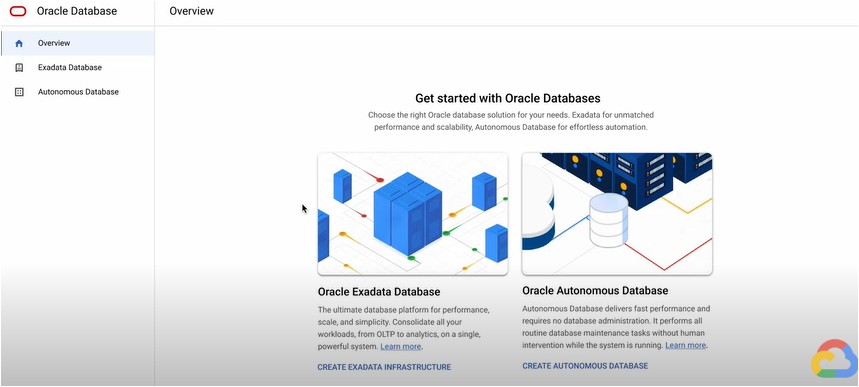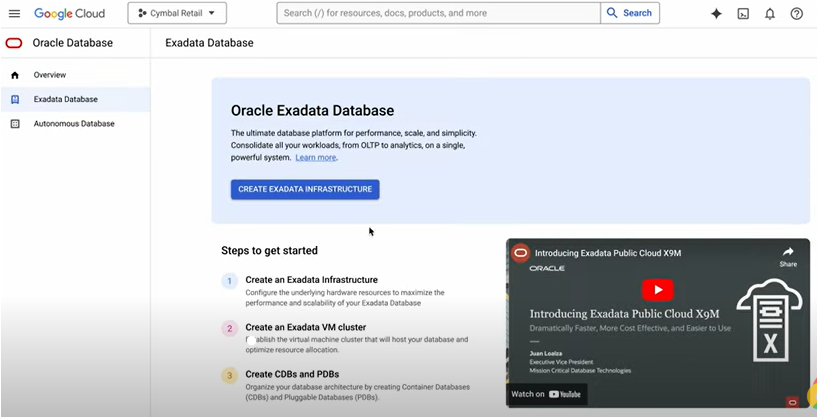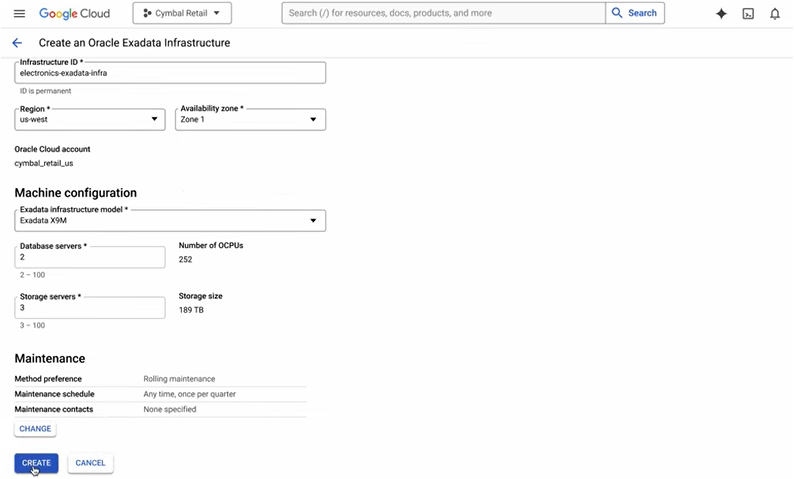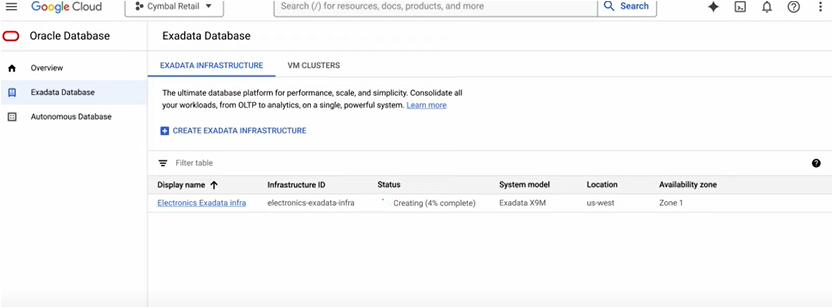Oracle is widely used to store, manage, and perform complex operations on data, making it ideal for business-critical operations. You can efficiently scale your business data by hosting Oracle services on the Google Cloud Platform.
GCP offers efficient resource utilization, which can be helpful when performing operations like data processing, analysis, and visualization. Integrating these platforms provides many benefits, including reduced cost, simplified operation, and enhanced performance.
This article will discuss how the GCP Oracle integration can help you optimize your business workloads.
Table of Contents
Understanding GCP Oracle
- GCP Oracle is an integration between two platforms that allows you to run Oracle services over the Google Cloud Platform.
- You can host Oracle on GCP and use Google Cloud’s features, such as cost-effectiveness, flexibility, and reliability, to enhance your data performance.
- Google Cloud offers integration with various Oracle solutions, including Oracle databases and Oracle Cloud Infrastructure (OCI).
- Setting up virtual private clouds within the Google environment can secure your network and ensure low-latency communications between two platforms.
- It allows you to migrate your Oracle workloads to GCP and ensure uninterrupted access to the Oracle services.
Struggling to connect Oracle and GCP? Hevo’s no-code platform is designed for quick and easy integration between 150+ sources, such as Oracle, to a destination of your choice. Check out the cool features of Hevo:
- Live Support: With 24/5 support, Hevo provides customer-centric solutions to the business use case.
- Schema Management: Hevo Data automatically maps the source schema to perform analysis without worrying about the changing schema.
- Real-Time: Hevo Data works on the batch as well as real-time data transfer so that your data is analysis-ready always.
Oracle Cloud Infrastructure (OCI) VS Google Cloud Platform (GCP)
Oracle Cloud Infrastructure and Google Cloud Platform are designed to tailor different organization needs. Here are some of the key differentiating features between them:
| Feature | Oracle Cloud Infrastructure (OCI) | Google Cloud Platform (GCP) |
| Workload Migration | Offers fully managed Oracle database services and VMware solution control for Oracle-specific workload optimization. | Supports various migration options like rehosting, platform migration, and rewriting for flexibility across workloads. |
| On-Premise Cloud Power | Cloud@Customer provides Oracle public cloud services directly in customer data centers, with low latency and cost savings. | Anthos offers hybrid multi-cloud capabilities based on containerized deployments for consistency in data management. |
| Security Automation | Uses a zero-trust framework with Oracle Security Zone, Cloud Guard, and OCI IAM for comprehensive security and automation. | Employs BeyondCorp for zero-trust security, focusing on context-aware access, single sign-on, and device authorization. |
| Service Level Agreements | SLAs are customizable for monitoring and managing data resources across the organization’s specific needs. | SLAs are available per service (e.g., storage, compute) with a focus on minimizing downtime and maximizing availability. |
GCP Oracle Migration Strategies
Google offers various migration strategies to address varied constraints related to hosting workloads from Oracle to GCP. These strategies help you with licensing, manageability of data, and maintenance costs. Let’s take a deeper look at them:
Rehost
Rehosting lets you move your Oracle applications to GCP without making any modifications. It is also known as a ‘lift and shift’ strategy. This migration strategy is ideal when the business data has little or no changes.
It is easy to implement and perform because you can use the same tools and skills as before the migration. You can use Bare Metal solution to migrate your Oracle workloads with specific configurations to the GCP environment.
Replatform
The Replatform migration strategy, or the ‘lift and optimize’ strategy, is an excellent choice to leverage the cloud’s core competencies. The cloud features include security measures, redundancy, and elastic computing.
This migration GCP strategy allows you to keep the core Oracle application code. It helps reduce licensing fees and maintenance, as cloud-native solutions require less manual servicing.
Rewrite
The GCP rewrite migration strategy lets you rewrite your Oracle application, enhancing its scalability and data availability. You can use Spanner database, a Google database service that allows you to scale your Oracle relational database globally. It uses SLA, ensuring appropriate resource allocation and enabling you to manage your source data efficiently.
How to Set Up Oracle Infrastructure on GCP Using Google Cloud Console?
There are several steps involved in creating a GCP Oracle infrastructure. You can run Oracle Exdatabase and Autonomous database service on Google Cloud.

Let’s see how to set up the Oracle Exadata Database Infrastructure on GCP using the Google Cloud Console.
Step 1: Go to Google Cloud and click Create Oracle Exadata Infrastructure.

Step 2: Provide specific details such as the database instance name, infrastructure ID, the region you want to run your instance in, infrastructure model, and database and storage servers.

Step 3: Once you fill out all the mandatory fields, click CREATE. The database will be created, and this window will open.

Once the Status shows value complete, your Oracle Exadata database is ready to run.
How to Optimize Oracle Workloads with Google Cloud Solutions
GCP simplifies the data management process and optimizes Oracle workloads by providing the following facilities:
- Reduce TCO: GCP provides competitive pricing models, such as discounts for sustained usage and pay-as-you-go. These help reduce overall up-front software, hardware, and maintenance costs.
- Scalability: Sometimes, it is difficult to access data in high concurrent environments. GCP offers SLA—a backed database that enables you to handle large volumes of data while protecting your operations from downtime.
- Simplify Operations: Google’s fully managed database services allow you to focus on using the data rather than managing the infrastructure. It reduces the overhead work on your operations team, enhances productivity, and improves business performance.
You can also read about:
- Export Oracle SQL output to Excel/CSV
- Integrate RDS Oracle with PostgreSQL
- Migrate AWS RDS Oracle to BigQuery
- Migrate AWS RDS Oracle to Snowflake
Conclusion
GCP provides a robust infrastructure for hosting Oracle workloads in the cloud environment. By integrating Oracle with GCP, you can have many benefits, such as workload optimization, resource utilization, scalability, and simplification of business operations.
While GCP offers a powerful infrastructure to host Oracle services, you can use ELT tools such as Hevo to normalize data before integrating it into GCP. It helps you maintain data consistency and reduce overhead costs for normalizing data from various sources.
Want to take Hevo for a spin? Sign Up for a 14-day free trial and experience the feature-rich Hevo suite firsthand. Also, check out our unbeatable pricing to choose the best plan for your organization. Share your experience of GCP Oracle integration in the comments section below!
FAQs
1. What migration tools does Google Cloud offer for Oracle databases?
Google offers different migration tools for other purposes. Here are some of them:
– Bare Metal Solution can lift and shift Oracle workloads with dedicated interconnected services.
– Cloud SQL can be used to migrate Oracle workloads to a fully managed database, lowering the total cost of ownership.
– You can also use Spanner to scale your Oracle workloads.
2. Can you connect the Oracle database to the GCP data stream?
To connect the Oracle database to the GCP data stream and extract data from it, you need to grant the user the following permissions:
GRANT EXECUTE_CATALOG_ROLE TO [gcp_datastream_user];
GRANT CONNECT, CREATE SESSION TO [gcp_datastream_user];
GRANT SELECT ANY TRANSACTION, SELECT ANY TABLE TO [gcp_datastream_user];
Grant access to specific system objects:
– V_$DATABASE
– V_$ARCHIVED_LOG
– V_$LOGMNR_LOGS
– V_$LOGMNR_CONTENTS
– DBMS_LOGMNR, DBMS_LOGMNR_D with SELECT or EXECUTE rights as required.
3. What type of database is GCP?
Google Cloud Platform (GCP) offers various types of databases, including relational databases like Cloud SQL and BigQuery, a data warehouse, and NoSQL options such as Firestore, Cloud Bigtable, and Cloud Datastore.









